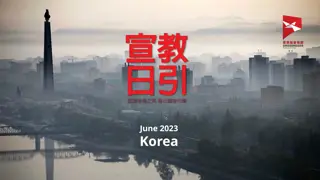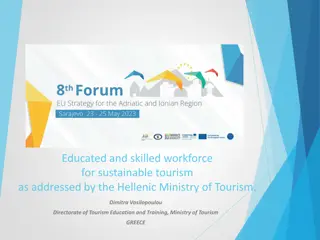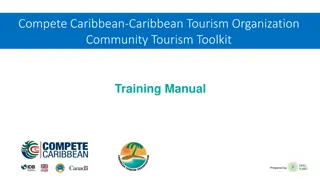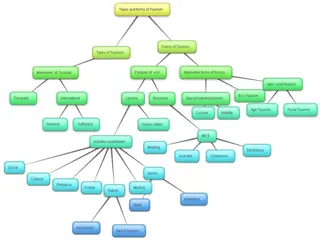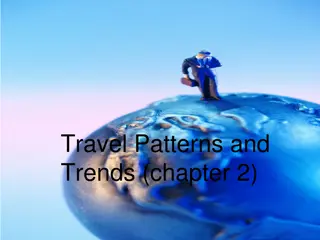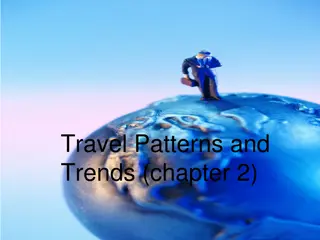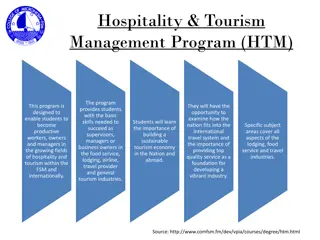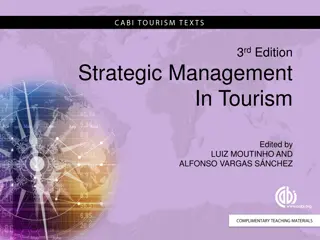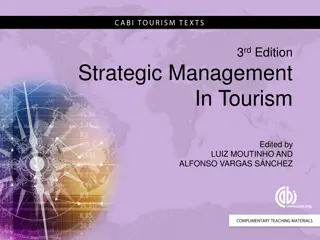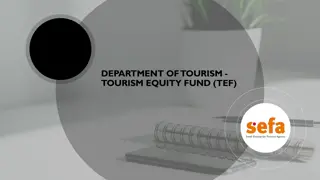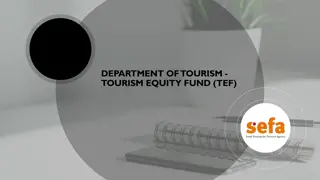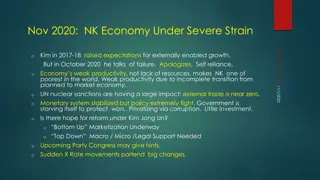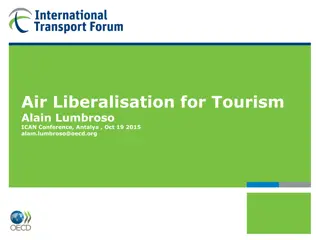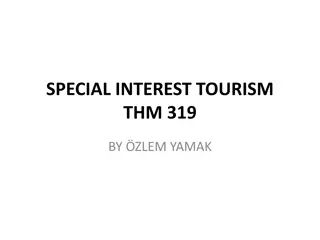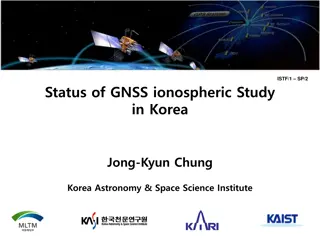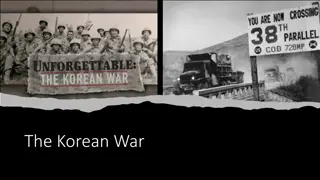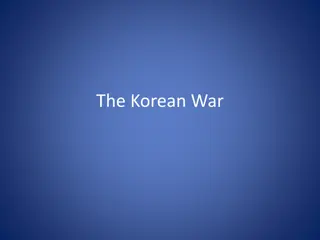Unique Insights into North Korea's Tourism Industry
Explore the controlled admission process of Kumsusan Memorial Palace and the suspension of South Korean tourists at Mount Kumgang Resort. Discover the walking trails of Mount Myohyang engraved with Kim Il-Sung's slogans, the International Friendship Exhibition housing gifts for the leader, and the unique aspects of North Korean tourism culture. Learn about the state-owned hotels, the monumental Ryugyong Hotel, and how tourism influences government information control in North Korea.
Download Presentation

Please find below an Image/Link to download the presentation.
The content on the website is provided AS IS for your information and personal use only. It may not be sold, licensed, or shared on other websites without obtaining consent from the author.If you encounter any issues during the download, it is possible that the publisher has removed the file from their server.
You are allowed to download the files provided on this website for personal or commercial use, subject to the condition that they are used lawfully. All files are the property of their respective owners.
The content on the website is provided AS IS for your information and personal use only. It may not be sold, licensed, or shared on other websites without obtaining consent from the author.
E N D
Presentation Transcript
Kumsusan Memorial Palace Admission carefully controlled and must be pre- arranged Dress formally Security checks Shoes disinfected Strong air blowers Awards and medals of Kim Il Sung
South Korean tourists Mount Kumgang Restort by Hyundai Suspended in 2008 because a South Korean tourist was shot
Mount Myohyang Trails for walking Landscape of steep mountains, valleys and waterfalls Bare rock cliff faces are engraved with slogans and quotes from Kim Il Sung
International Friendship Exhibition 120 rooms, almost 250,000 gifts presented by world dignitaries and governments to Kim Il Sung For example bullet proof cars from Joseph Stalin Portaits in different styles of the leader
North Koreans usually do not travel Weekends and holidays in the park, as a family Communal singing of patriotic songs or dancing Amusement parks low prices
All hotels are state-owned and managed 6,000 rooms but only 2,000 tourists annually Koryo Hotel Myohyang
Ryugyong Hotel World s largest Construction began 1987 stopped in 1992 24th highest 330 metres and 7 revolving restaurants Started in 2008 Planned opening in 2012 + Kim Il Sung s 100th birthday
United Nations World Tourism Organisation endorses visits outsiders best way to break the government s monopoly Since everything is government owned, profits from tourism would be used to support a regime accused of human right abuses and disregarding international laws Experience suggests that keeping North Koreans isolated cements government monopoly of information over people Illegal for them to listen to foreign radio All televisions are tuned into the government s channels Restricting tourism is to control the flow of information to the locals
SWOT Strengths Weaknesses Opportunities Threats
Wide range of natural attractions 3 star hotels in Pyongyang and key locations Good choice of local cuisine Historical and cultural heritage Hospitality Impressive monuments and government buildings Good network highways clean and well-maintained tour coaches Well-trained guys, excellent foreing language skills Facilities capable of handling small conferences
Limited air access Strict visa requirements Public image of North Korea- driven by politics and hostile media Tourism infrastructure need upgrading Limited training for personnel dealing with tourists Limited choice of non-Korean food Limited range of souvenirs, expensive Restrictions of foreign private investments Harsh winter reduces tourist season to 9 months or less
A trip to North Korea novelty, bragging rights Perception of last bastion of socialism/communism Focused marketing and destination brand development Attract foreign arilines to open scheduled or charter air services Foreign tourism development Huge potential markets in neighbouring countries Potential niche products, winter sports, ecotourism, VFR, conferneces Accelerating cooperation with South Korea and potential for joint destination marketing
Government bureaucracy Lack of tourism infrastructure funds Lack of destination marketing funds Negative impact on markets of ongoing political developments Possible instability if and when the country s leadership changes Fear of an invasion by US and South Korean forces


